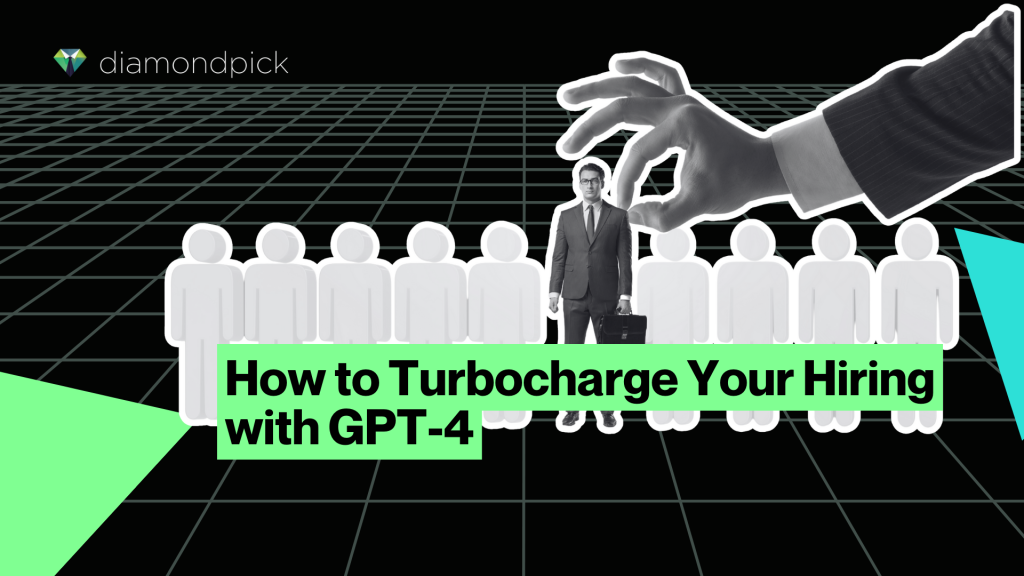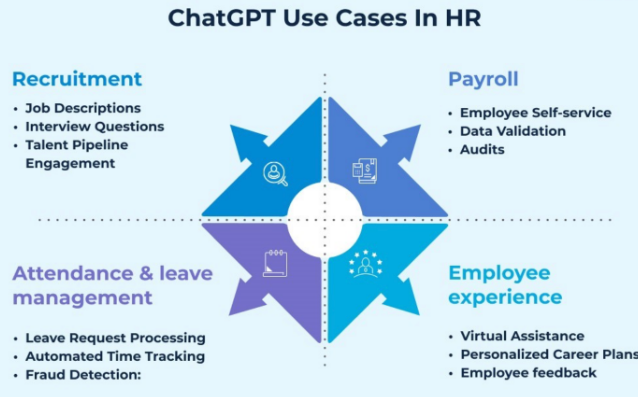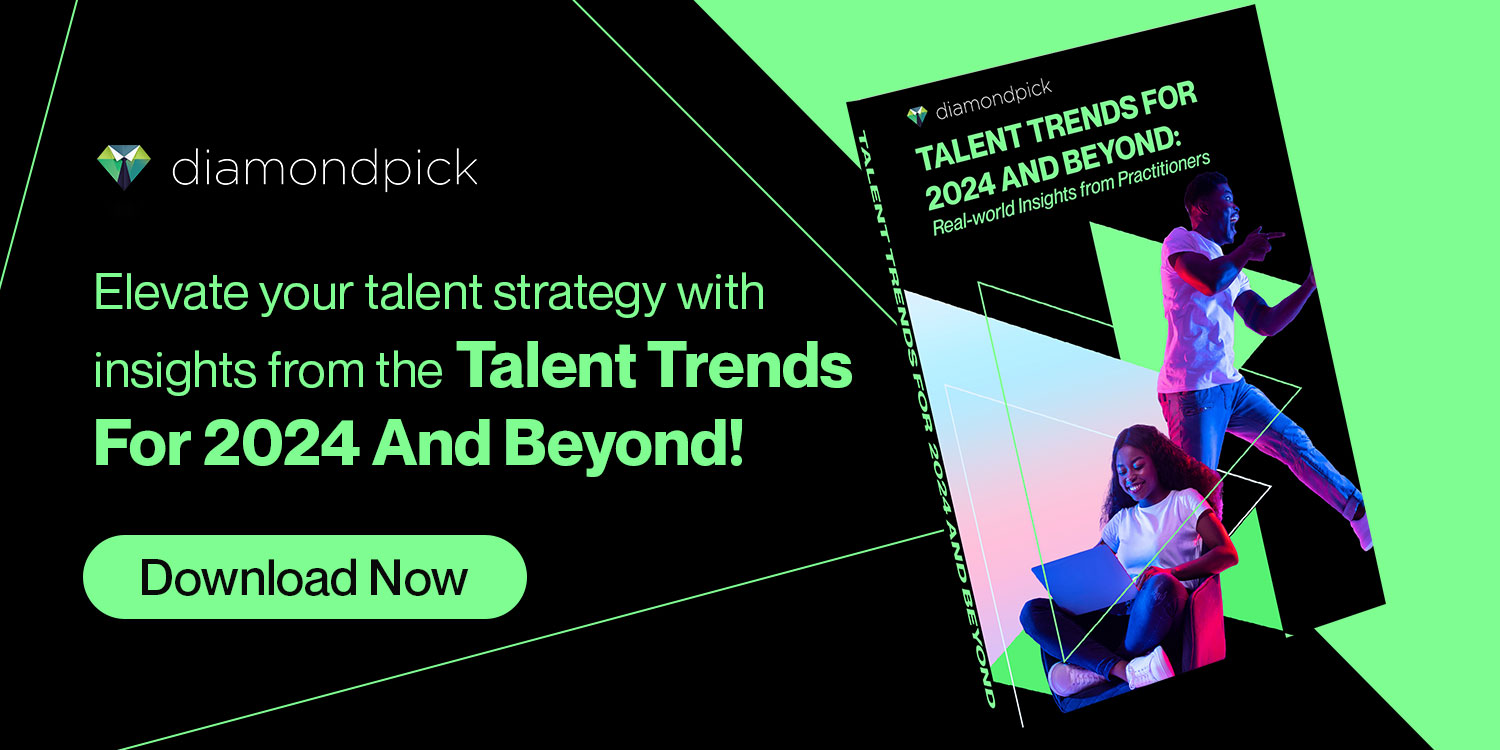
HR is facing massive disruption, with Gen AI transforming every facet, traditional ways of work, talent processes, roles, skills, and experiences. From refining job descriptions to enhancing sourcing capabilities, Gen AI is unlocking new dimensions and potentials. Chat GPT’s potential unfolds to its fullest when paired with data and context. Read this article for more on the transformative power of Gen AI in HR and recruitment.
Gen AI in Talent Acquisition and Beyond

Gen AI has undoubtedly revolutionized the initial stages of talent acquisition and HR in today’s competitive marketplace with smart hiring processes, enhanced decision-making, elevated employee engagement, and fortified employer branding.
HR professionals rely on AI-powered chatbots like Chat GPT to automate various HR processes and communication with employees. While automation streamlines many aspects of HR, it’s crucial to recognize that the human touch brings an irreplaceable value to the process. As we enter 2024, a shift in gears is anticipated – with Gen AI unlocking new dimensions and potentials and human skills becoming pivotal in the age of Gen AI.
Redefining Processes and Roles
HR is facing massive disruption, with Gen AI transforming every facet, traditional ways of work, talent processes, roles, skills, and experiences. By redesigning processes and harnessing the full spectrum of Gen AI applications, HR leaders are driving transformative change across their organizations.
Prior to Gen AI-powered GPT tools, chatbots assisted employees in obtaining information on HR-related matters without the need to engage with a human resource representative. GPT has significantly streamlined this process, making it incredibly simple to develop such chatbots with minimal development time. The integration of Chat GPT Turbo is set to reshape various facets of HR and recruitment in 2024 and beyond.
Transformative Innovations and Future Pathways
GPT builders, exemplified by Chat GPT Turbo, signify a democratization of knowledge within TA teams. The smartest talents can now construct comprehensive guides on sourcing and probing candidates and making this expertise accessible to the entire team, thereby transforming the dynamics of talent acquisition.
Gen AI’s influence is far-reaching, from refining JDs and KPIs to enhancing sourcing capabilities and candidate interactions to addressing policy-related queries. These capabilities promise to streamline processes, improving efficiency and overall candidate experience.
Chat GPT Turbo Uses Cases in HR
- Job Descriptions & Key Performance Indicators: Presently, many job descriptions lack specificity, but with Gen AI, TA teams can align precise Key Performance Indicators (KPIs) for a job description by collaborating with Hiring Managers.
- Sourcing: While the current GPT may not excel at sourcing, strategic engineering of prompts can enable a GPT to emulate the approach taken by the top 1% sourcers.
- Candidate Interaction: GPT can effectively engage candidates by sharing insights into the organization’s culture, team dynamics, and enticing perks and benefits.
Policies & Leaves: Functioning as an HR representative, GPT can provide accurate information regarding company policies, leave entitlements, or even access salary databases to address candidates’ operational queries

GPT’s potential unfolds to its fullest when paired with data and context. A critical aspect often overlooked by many HR systems is the capture of essential contextual information.
Consider a scenario where a candidate expresses a specific interest in a job located only in Delhi—such nuanced details might not find a place in the traditional systems. If this context is highlighted and integrated into GPT, a highly specific result can be produced. This functionality proves exceptionally valuable for large agencies and enterprises managing diverse hiring requirements across multiple locations.
While data is mine, it’s the context that acts as the transformative gold, turning information into actionable insights.
Gen AI: Redesigning Workflows and Enhancing Efficiency
While we have witnessed remarkable strides in GenAI, we are merely scratching the surface of its capabilities. Here’s how recruitment teams can leverage GPT to bring about transformative change:
- Role/Persona Understanding: Over 95% of recruiters lack a precise understanding of the personas associated with the roles they hire for. Leveraging GPTs presents an opportunity for recruiters to enhance their persona understanding, contributing to more effective talent acquisition.
- Probing: Once the persona is comprehended, recruiters can discern the appropriate probing questions to pose to candidates, facilitating a more insightful and targeted recruitment process.
- Delivery Planning: Nuanced delivery timelines can be obtained with engineered prompts that will carry out an analysis of talent pool availability across platforms against positions to be filled.
Organizations need to make strategic investments in HR Tech for Enhanced Talent Management. Investing in the right kind of HR technology is essential, steering clear of tools that may seem visually appealing but lack substantive performance. It’s important to actively test and validate these tech tools in practical scenarios, evaluating diverse roles across niche and non-niche functions in varied organizational contexts.
GPT is a powerful tool for recruiters, yet it carries inherent biases. To mitigate this, it’s essential to enlist subject matter experts (SMEs) for each automated process. These experts should thoroughly review each module, making necessary adjustments to ensure accuracy and fairness in the system. Despite its potency, acknowledging and addressing biases is crucial to fully harness GPT’s capabilities.

For more insights, strategies, and tools that will help organizations navigate the dynamic talent market read Diamondpick’s Talent Trends 2024 eBook. Download your copy today!
